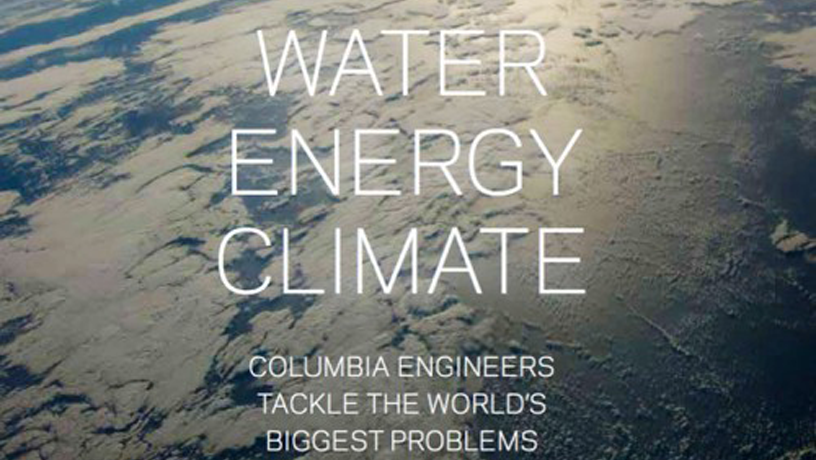Water Energy Climate

When it comes to Earth and its ever-changing environment, engineers are faced with a world of problems to solve. According to a report* produced by the Intergovernmental Panel on Climate Change (IPCC) in 2014 on global climate adaptation and vulnerability, the “severe and pervasive” effects of climate change will have a wide-reaching impact. The IPCC, an international group established by the United Nations Environment Programme and the World Meteorological Organization, reported that effects of climate change are already occurring on every continent and across the oceans, and “the world, in many cases, is ill-prepared for risks from a changing climate.”
That’s where climate experts, scientists, and engineers play a vital role, and at Columbia Engineering, major research efforts by professors, students, and postdocs are underway to tackle the diverse set of challenges posed by climate change. For example, Professors Adam Sobel and Pierre Gentine have developed a new simulation strategy that more accurately models Amazon seasonal cycles. This gives deeper insight into the water and carbon cycles of the Amazon rain forest and better understanding of tropical climates overall. Professor Kartik Chandran’s research on the global nitrogen cycle, resource recovery and reuse, and reengineering wastewater treatment has the potential to save our endangered planet from the negative impacts of climate change and to combat water resource shortages. Chemical engineers like Assistant Professor Daniel Esposito are converting sunlight into an electric current that is able to split water (H2O) into hydrogen and oxygen. The resulting hydrogen gas can be stored, transported, and used as an emissions-free fuel.
Our researchers are also looking at a range of challenges including climate and water risk, coupled with financial risk management; carbon sequestration; urban infrastructure design; and more. Here, Columbia Engineering highlights some of our faculty members whose groundbreaking research is chipping away at perhaps one of the most critical global challenges facing humanity today.
